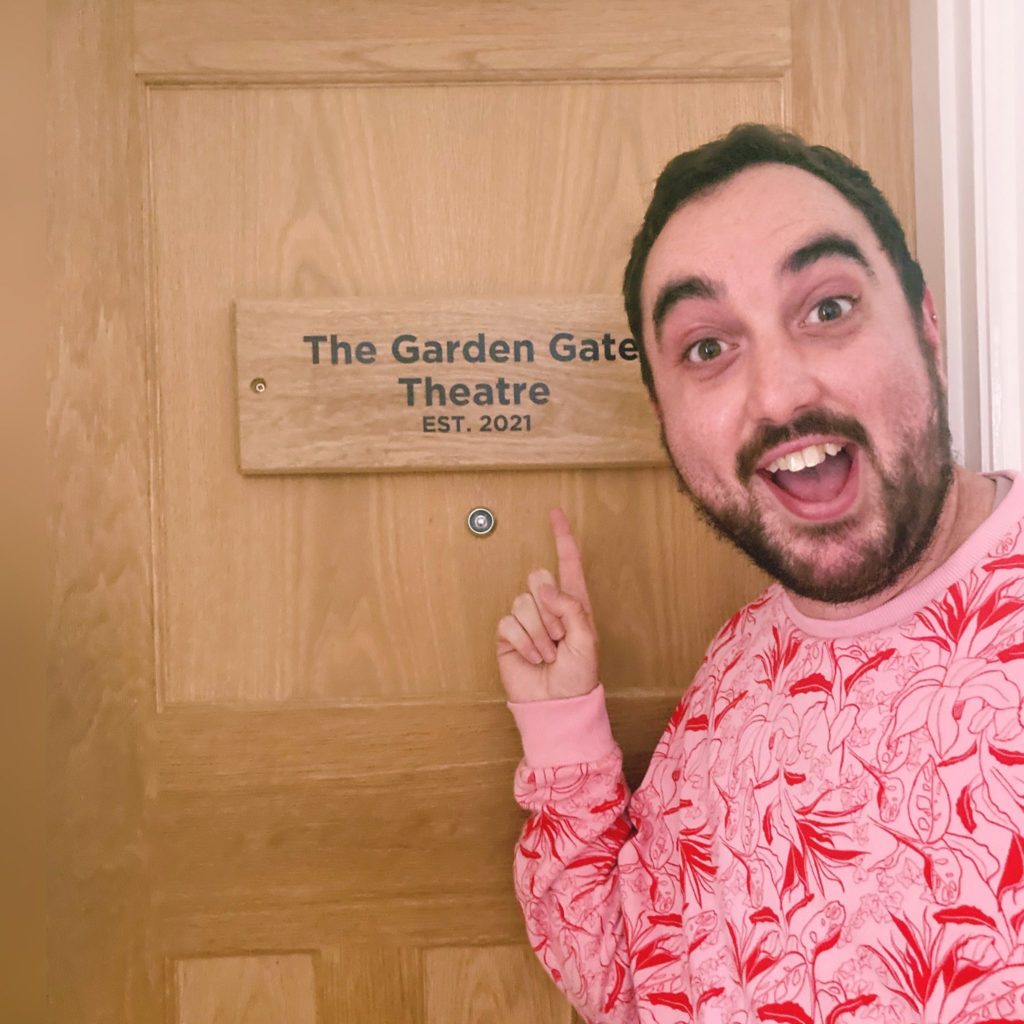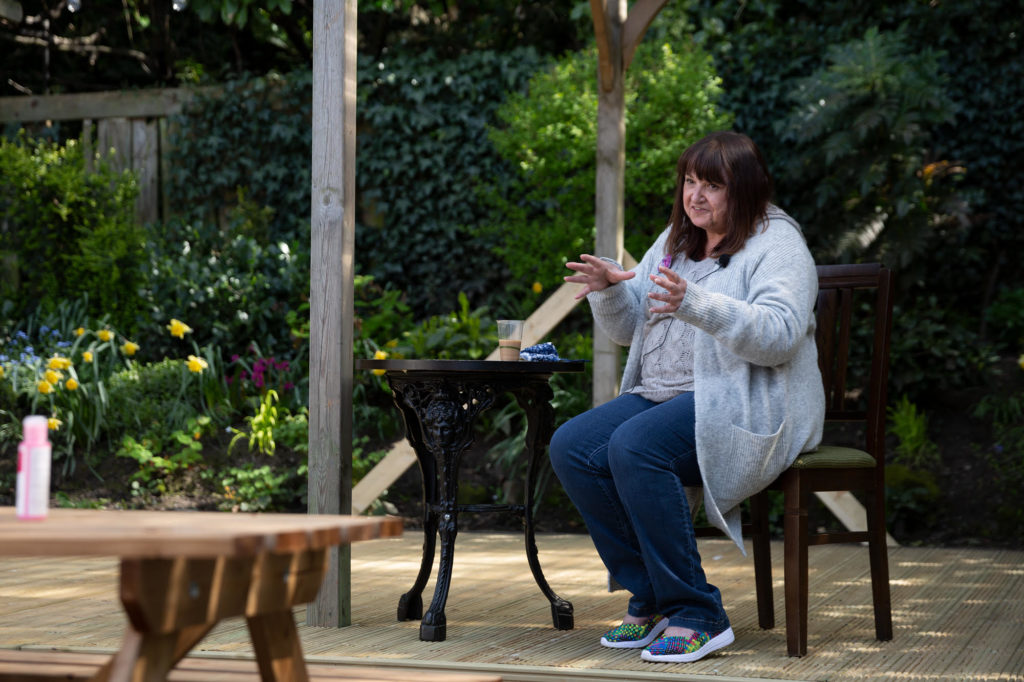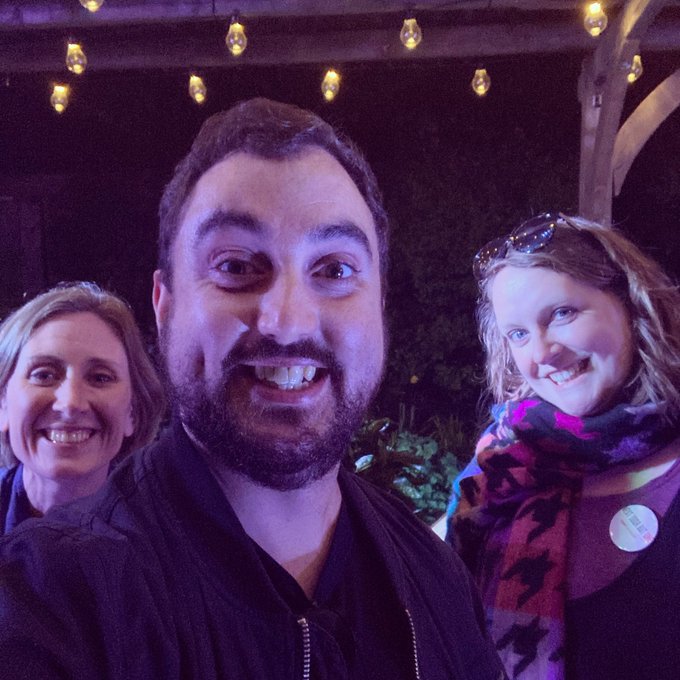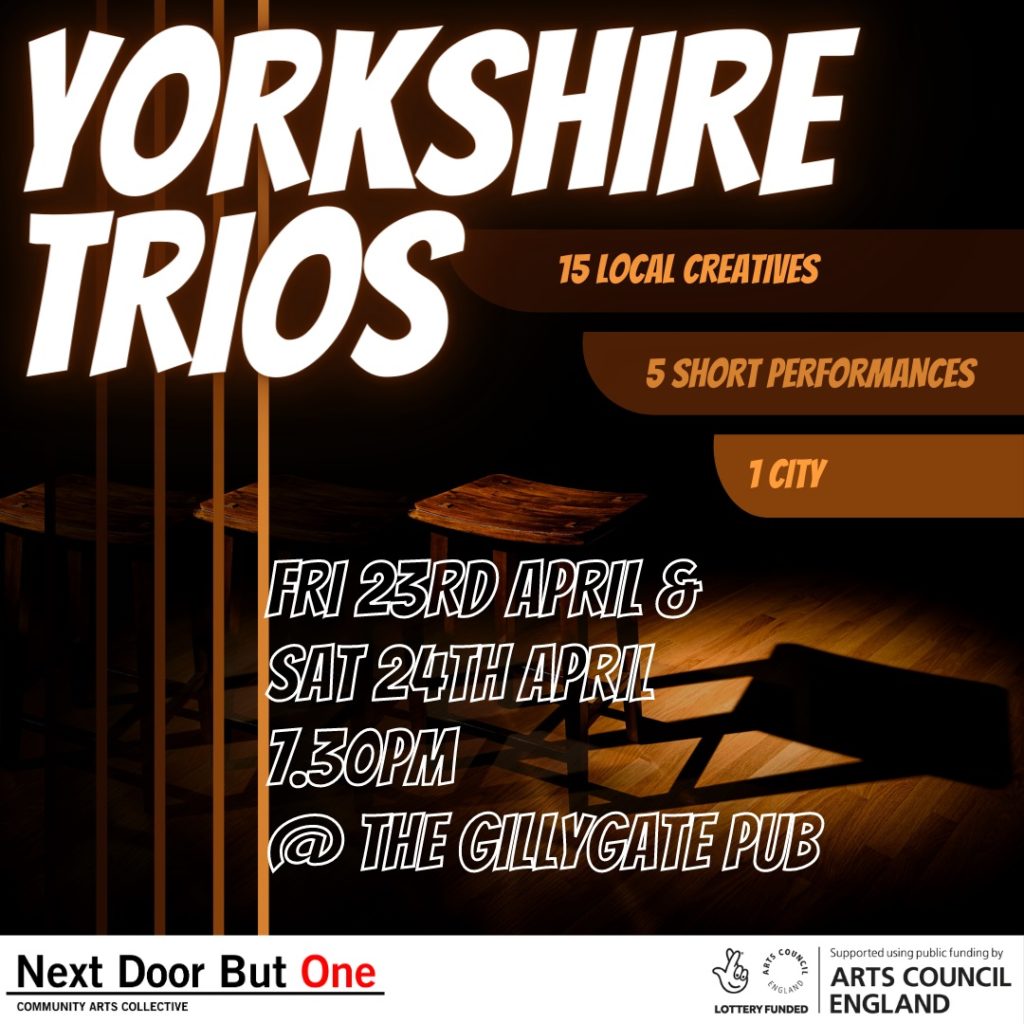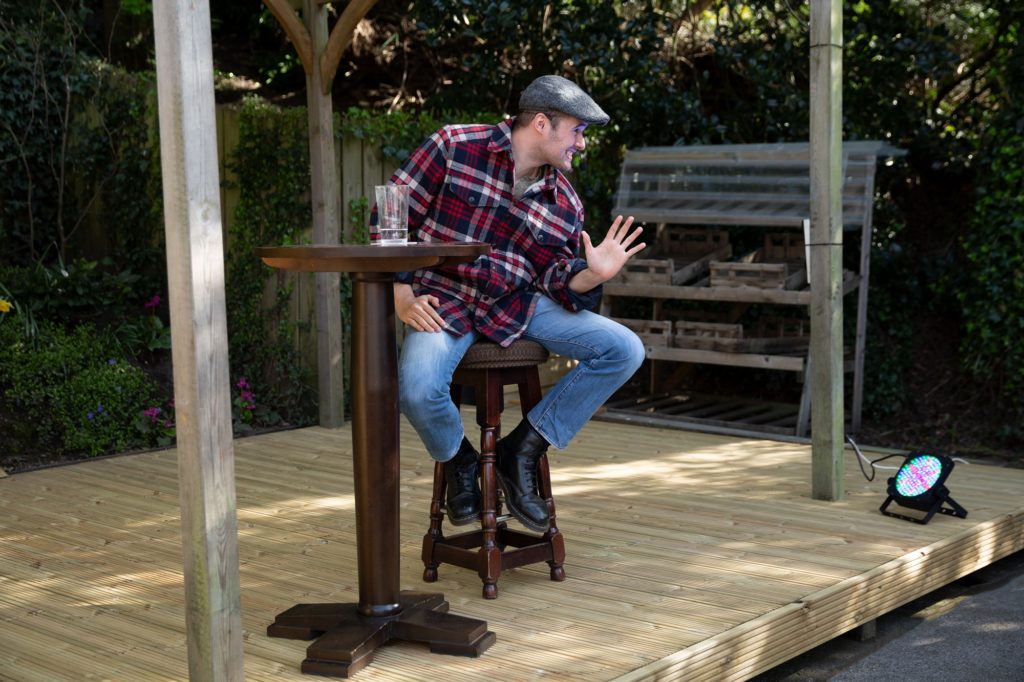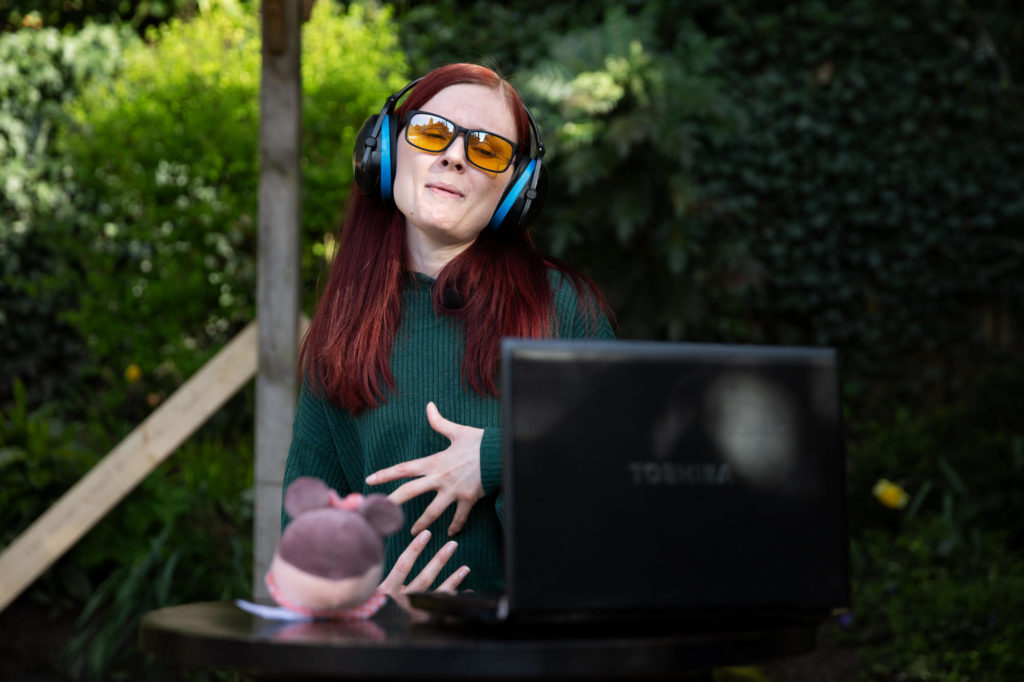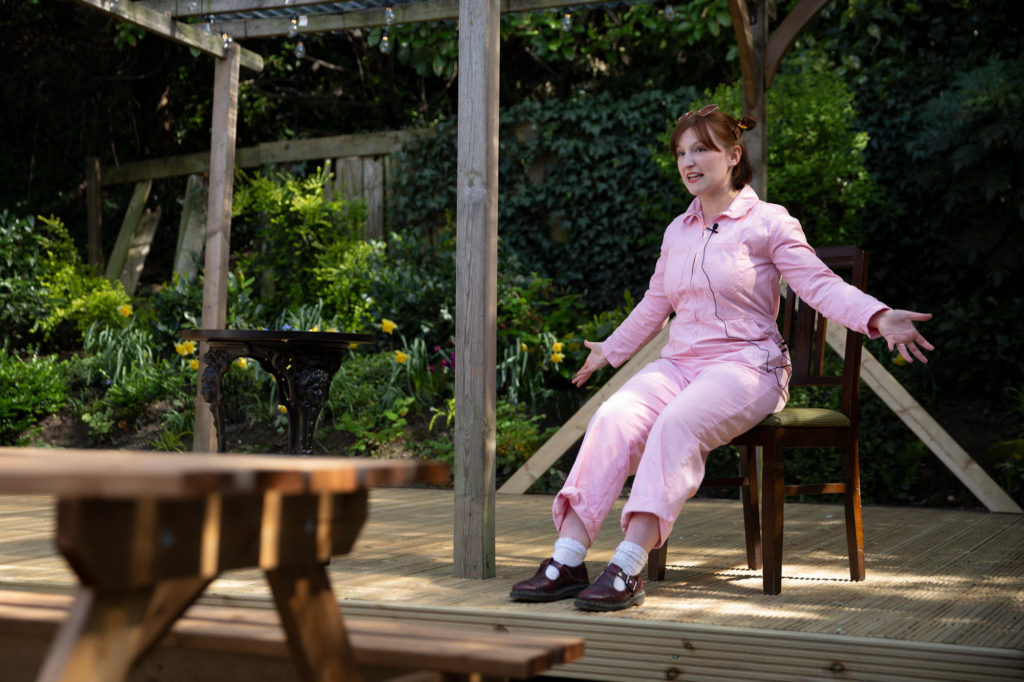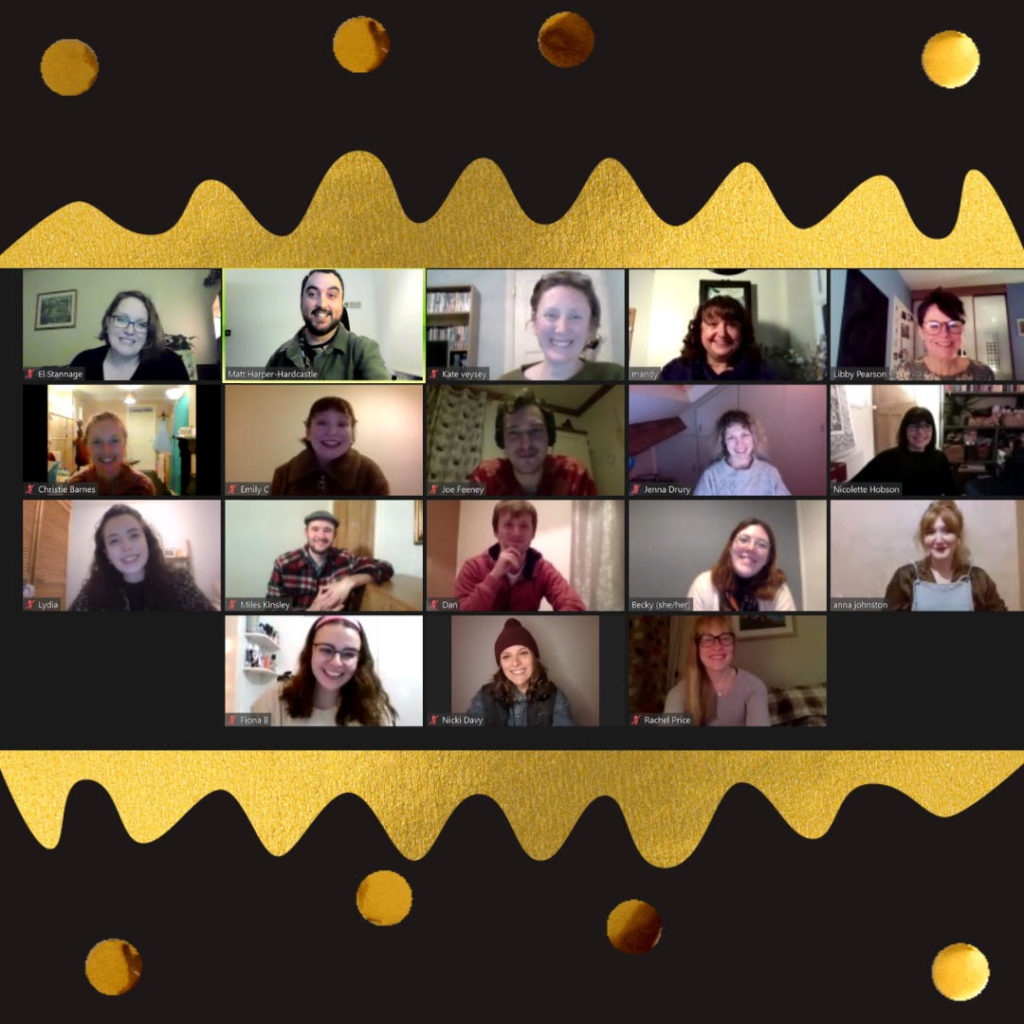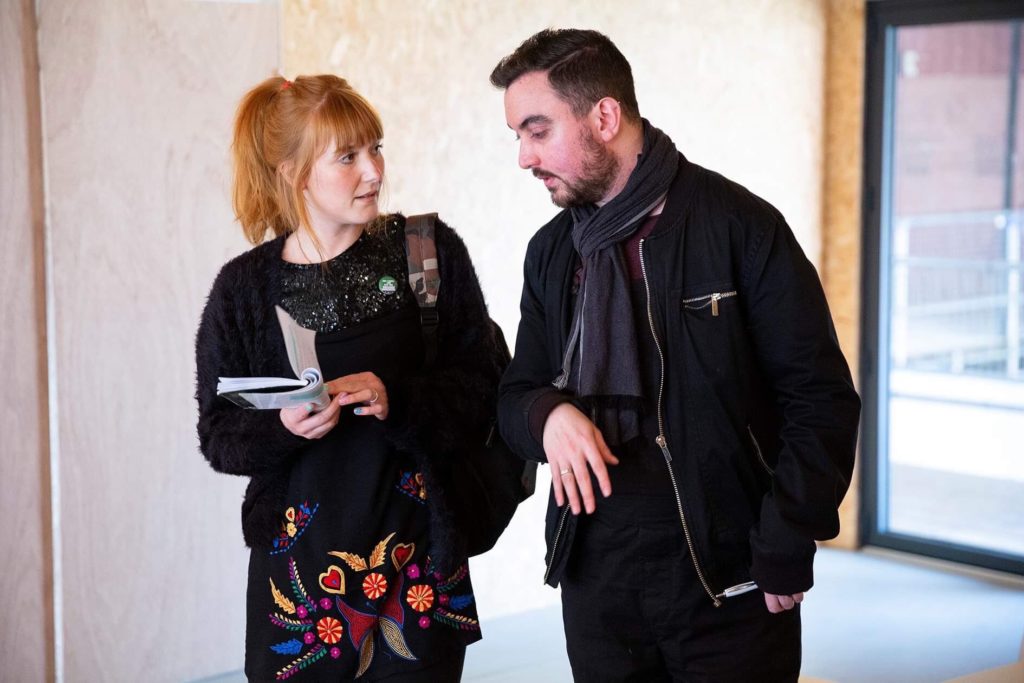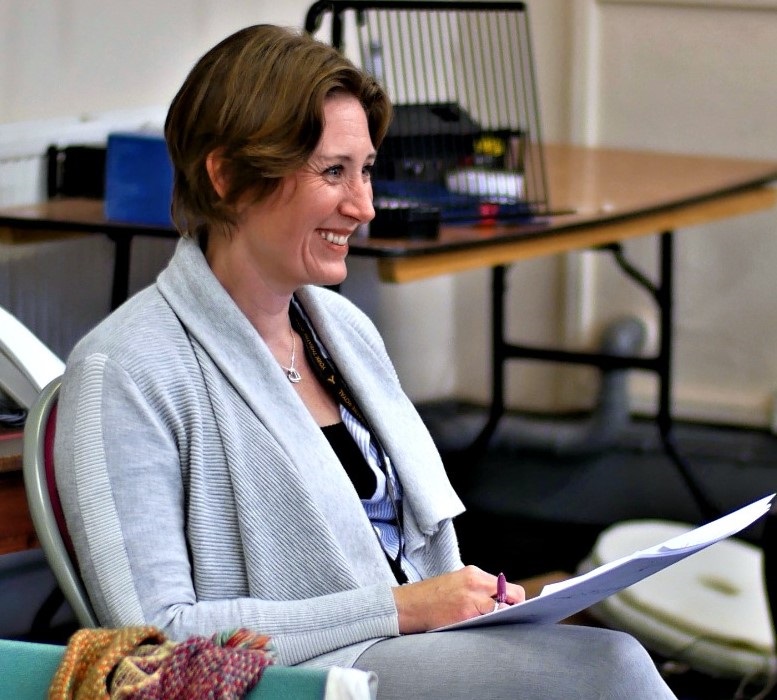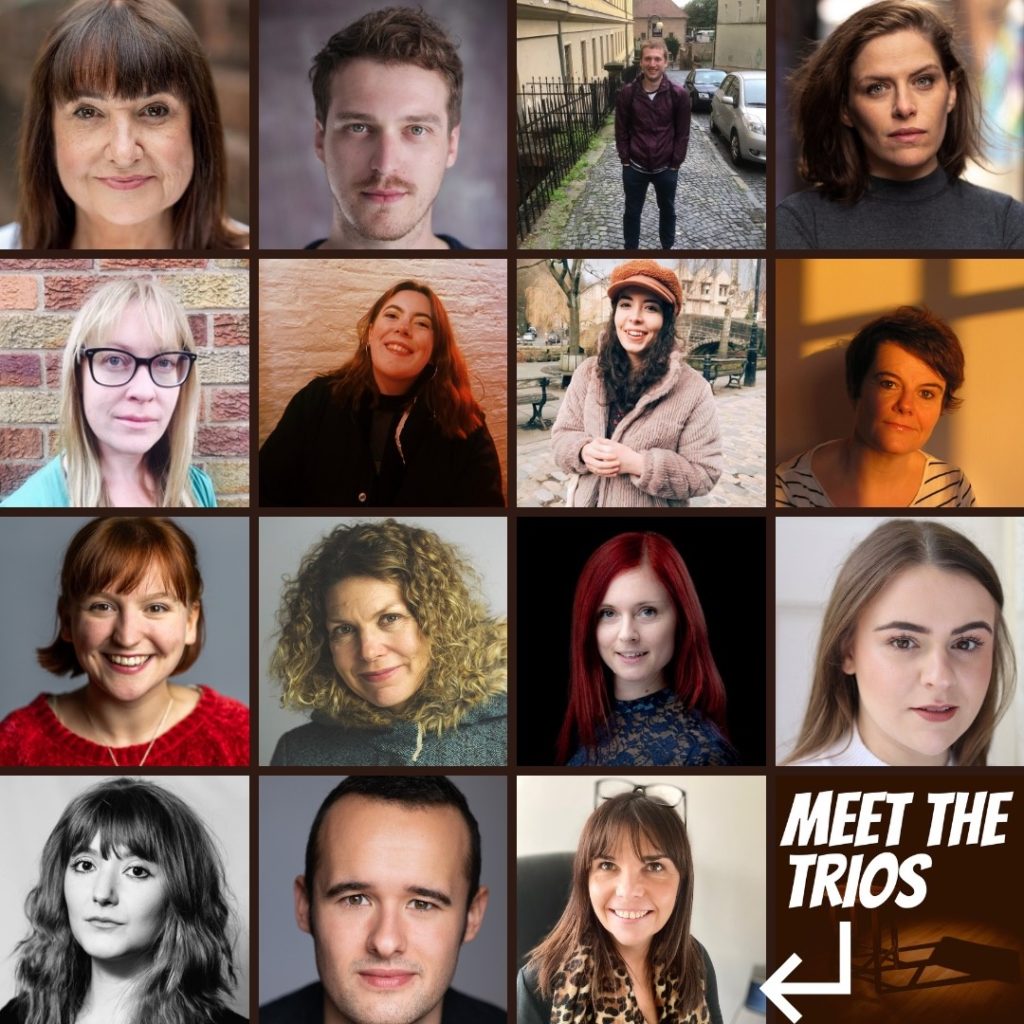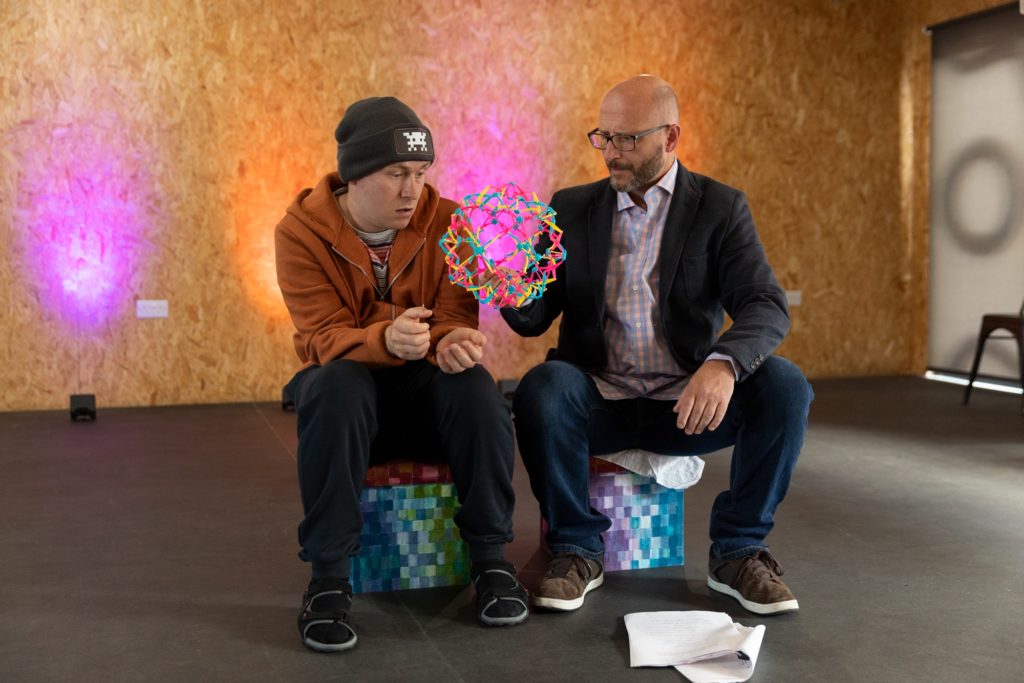
YORK community arts collective Next Door But One are teaming up with Explore York for a library tour of Matt Harper-Hardcastle’s Operation Hummingbird from Thursday.
James Lewis Knight will play Jimmy and Matt Stradling, James, in a one-act two-hander that takes the form of a conversation across the decades about a sudden family death, realising an opportunity that we all wish we could do at some point in our life: to go back to talk to our younger self.
Death, dying and bereavement have been prevalent factors in Next Door But One’s artistic programme for many years now, led by artistic director Matt’s own loss in 2016.
“When my mum was diagnosed with terminal cancer, my whole family turned to what they did best: some looking after all the paperwork, others the planning of appointments and medication, while I turned to what I knew, telling stories,” he says.
“From keeping a blog up to date so that friends and family were in the loop of what was going on, to telling stories of my mum to keep her memory alive”.
This quickly transferred to the stage in 2016 when Next Door But One produced Matt’s autobiographical play about his relationship with his mum, Any Mother Would. “The reaction to this relatively low-key performance was quite remarkable, with audiences saying they wished they had the space and tools to share memories and process their own grief in this way,” he recalls.
This set in motion a core strand of activity for Next Door But One, who ran a series of creative Death Cafés; hosted Playback Theatre performances for people to share stories of loved ones who had died; ran art and bereavement workshops for carers and produced Laura Wade’s Colder Than Here as part of York’s Dead Good Festival 2019.
Alongside this, Matt’s original blog was published as a book by The Writing Tree under the title of The Day The Alien Came. In response to this memoir of his mother’s death and his experience of living with loss, “people were then asking, ‘do you think your book will ever become a play?’,” he says.
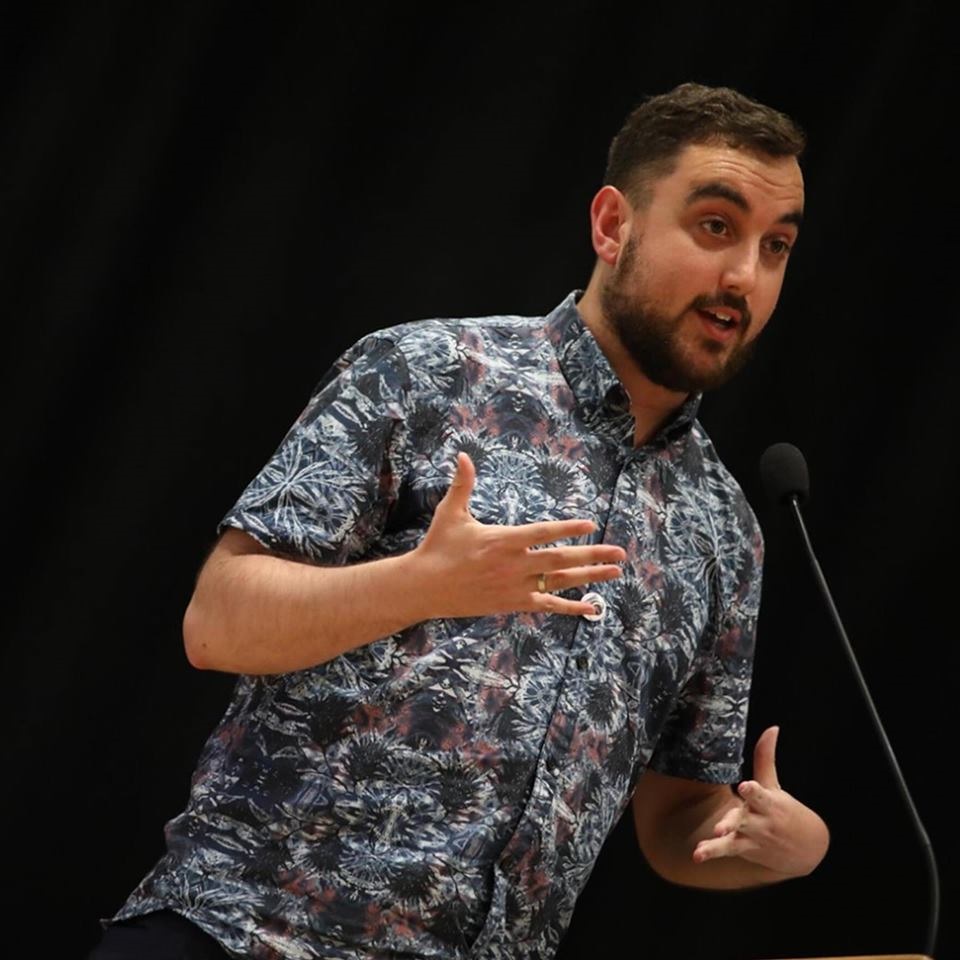
“I didn’t feel I could make it into a play but wanted to create something from the book’s themes and the parallels between the different experiences that have been shared with Next Door But One over the years”.
The result is Operation Hummingbird, to be performed on August 5 at New Earswick Folk Hall at 3.30pm and Dringhouses Library at 7pm and on August 12 at York Explore, 2pm, and Hungate Reading Café, 7pm. Seating will be limited to ensure Covid safety.
The mini-tour will finish in September with a closed performance, hosted by The Gillygate pub, in Gillygate, specifically for members of York Carers Centre, who have recent experiences of loss. Tickets are on sale at: nextdoorbutone.co.uk/Operation-Hummingbird.php
Commenting on the partnership with Explore York, creative producer El Stannage says: “We felt it made sense to partner with Explore on this production, as not only is the play connected to a story and a book, but after 18 months we have all experienced different losses through the pandemic.
“This way we are able to connect with audiences to the north, south and centre of York, providing them with a heartfelt portrayal of an experience we hope they can relate to.”
Next Door But One are not only excited to be taking their work out into the community once more, but also buoyed by taking up resident status at The Gillygate after re-launching live performances in Step 2 lockdown-eased York with Yorkshire Trios in the new outdoor theatre space in Brian Furey’s pub garden on April 23 and 24.
“We now have a home, a place to create and rehearse in the heart of the city, and with the support of The Gillygate, and their shared ethos of community engagement, our potential is rapidly expanding,” says Matt.
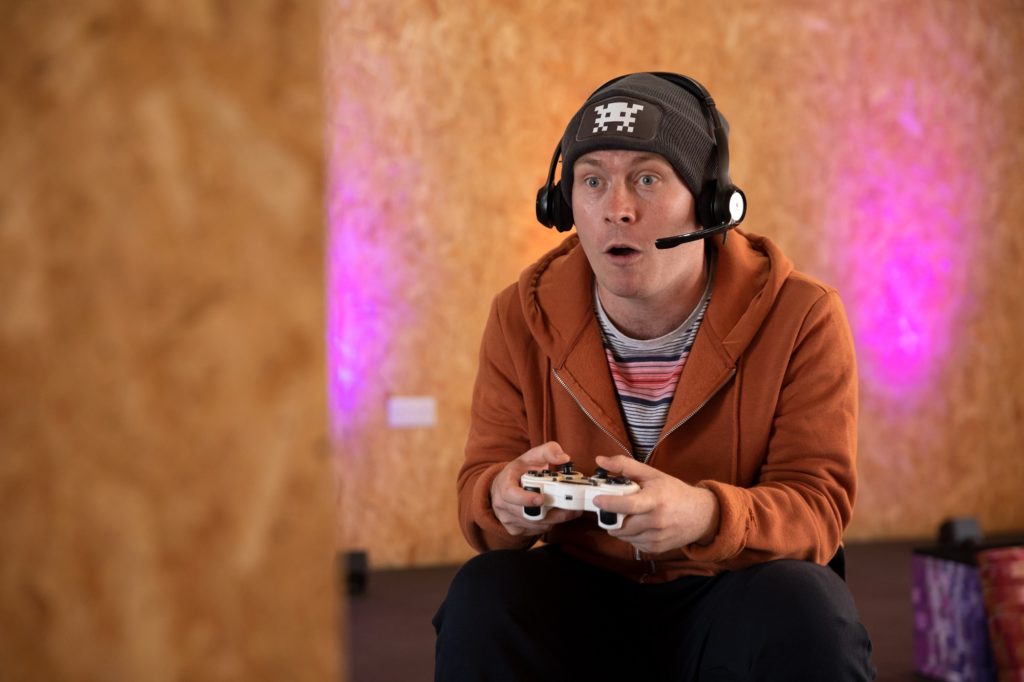
Ahead of Thursday’s opening performance, Matt answers CharlesHutchPress’s questions on play titles, dealing with death, talking to our younger selves, Hamlet versus King Lear, working with Explore York and taking up a residency at The Gillygate.
What is the significance of the title Operation Hummingbird, Matt?
“The title alludes to the central character’s childhood coping mechanism for dealing with his mother’s terminal diagnosis; rather than trying to grapple with medical terminology he draws parallels to battles he is more familiar with, like those on his games console.
“The hummingbird is a reference to who the character’s mum hopes she can become ‘afterwards’. So together, ‘Operation Hummingbird’ is the character’s fight to save his mum, which turns into his journey of living with loss.”
Death is a difficult subject to discuss; for some it is still taboo. Yet facing up to your mother’s death instead has awoken the need for you to contemplate grief in myriad ways. What has been the impact of all that creativity, both on others and on yourself?
“Well, it’s been a real snowball effect. We’re not good at talking about death, even though deep down we know we need to. Many people just need an opportunity presented to them that feels safe and more recognisable.
“People came to watch Any Mother Would and wanted to write their own stories, which led to us running the Death Cafés and Playback Theatre on loss, which gained momentum and put us at the heart of York’s Dead Good Fest 2019.
“The experience of grief can be a very lonely and isolating one and the main impact we’ve seen from participants and audiences is reassurance that their feelings are valid and shared by others.
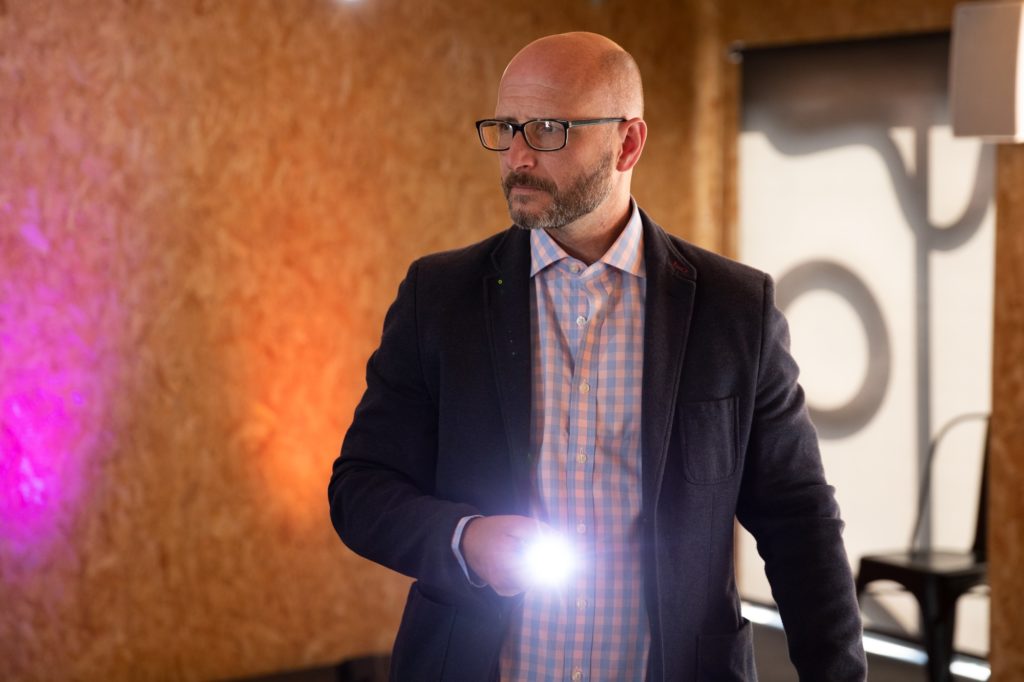
“For me personally, I thought I would be completely consumed by the grief of my mam’s death, but through creativity, I’ve been able to own it and take control over how it manifests itself in my life. So, strength is the impact it’s had on me.”
Given how widely you have addressed this theme already, what new elements are you looking to bring out in Operation Hummingbird?
“In writing the play, even though I’ve leaned into themes and emotions I’ve experienced myself, it’s been really important to weave in all the stories of death, dying and bereavement that have been shared with us over the years so that they are represented as the collective they’ve become.
“In terms of how Operation Hummingbird complements our existing repertoire on this topic…we’ve had the celebration of a life lived (Any Mother Would), the reaction to a terminal diagnosis (Colder Than Here) and now we are looking at the long-term impact of bereavement and the role it plays in shaping our identity as we age (Operation Hummingbird).
“So, quite serendipitously, we’ve ended up with almost a trilogy of death, dying and bereavement spanning from 2016 to the current day.”
Knowing that we can’t go back to talk to our younger selves, but wish we could, why do we wish it? Some would see it as a futile exercise, but here you are devoting a play to that theme. For what reason? Are you addressing other selves who are still young?
“It’s actually the futility you mention that is central to the narrative; often we wish we could fast forward grief, that someone could give us an end date, or that someone has all the answers on how we ‘get over it’. When, in reality, the only way to deal with grief is to live through it, to feel every emotion, to articulate what’s going on and find a way to live alongside it.
“I guess that’s the take-away message of the play. Even when presented with this unachievable opportunity, our older character struggles with how much to tell his younger self for fear of changing the person he becomes.”
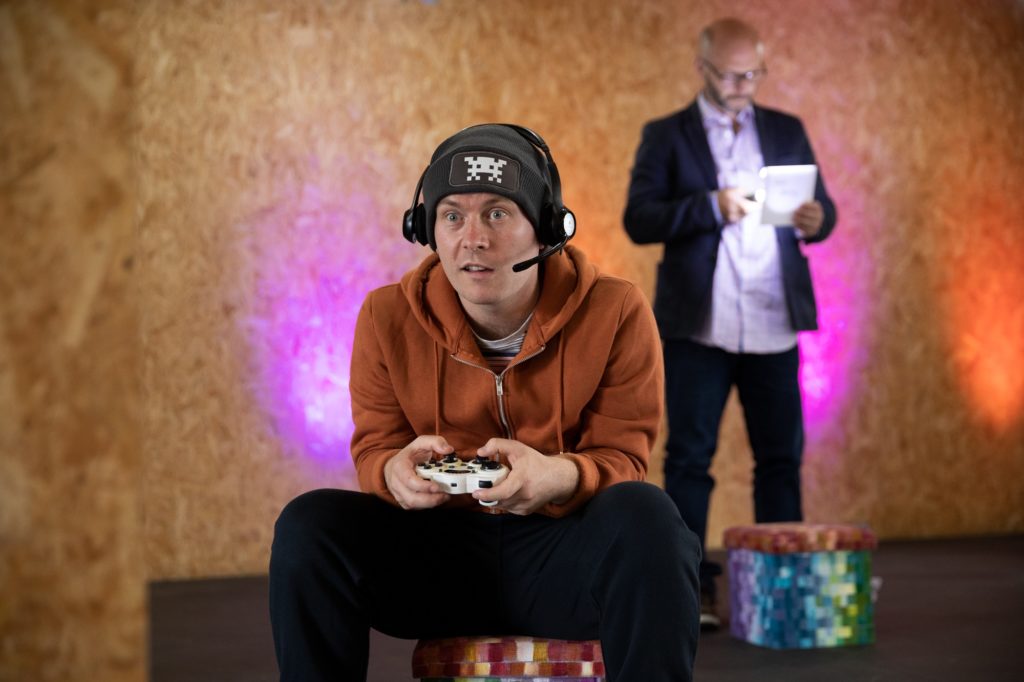
How did you settle on the play’s structure of a conversation across the decades (about a sudden family death)?
“As you said before, we can’t actually have this conversation between younger and older self, so there’s something really freeing as a writer to set a play in this liminal, non-attainable space where the usual rules of time and conversation can be blurred.
“I’ve always found inspiration in Emily Dickinson’s ‘Tell all the truth but tell it slant’; the cold hard truth given to us directly can make us disengage, but set reality on a fictional foundation and look at it through a creative lens and it becomes easier to digest. Meaning that something classed as ‘taboo’ can be moved closer toward, rather than running away from.”
In Operation Hummingbird, you ask: “Does our grief age as we do?”. As I grow older, King Lear is becoming more significant to me than Hamlet, and yet Ian McKellen is playing Hamlet at 82, having already played Lear. Interesting! Discuss!
“Very interesting! Maybe it’s just because I’m in the throes of Operation Hummingbird, but maybe casting McKellen as Hamlet is to show the power that grief and loss can hold over us at any age?
“I wonder what the interpretation of a 28-year-old Lear would be? Discuss!”
How long will the show be?
“The play is 45 minutes in length. I think lockdown has solidified my preference for a one-act play.”
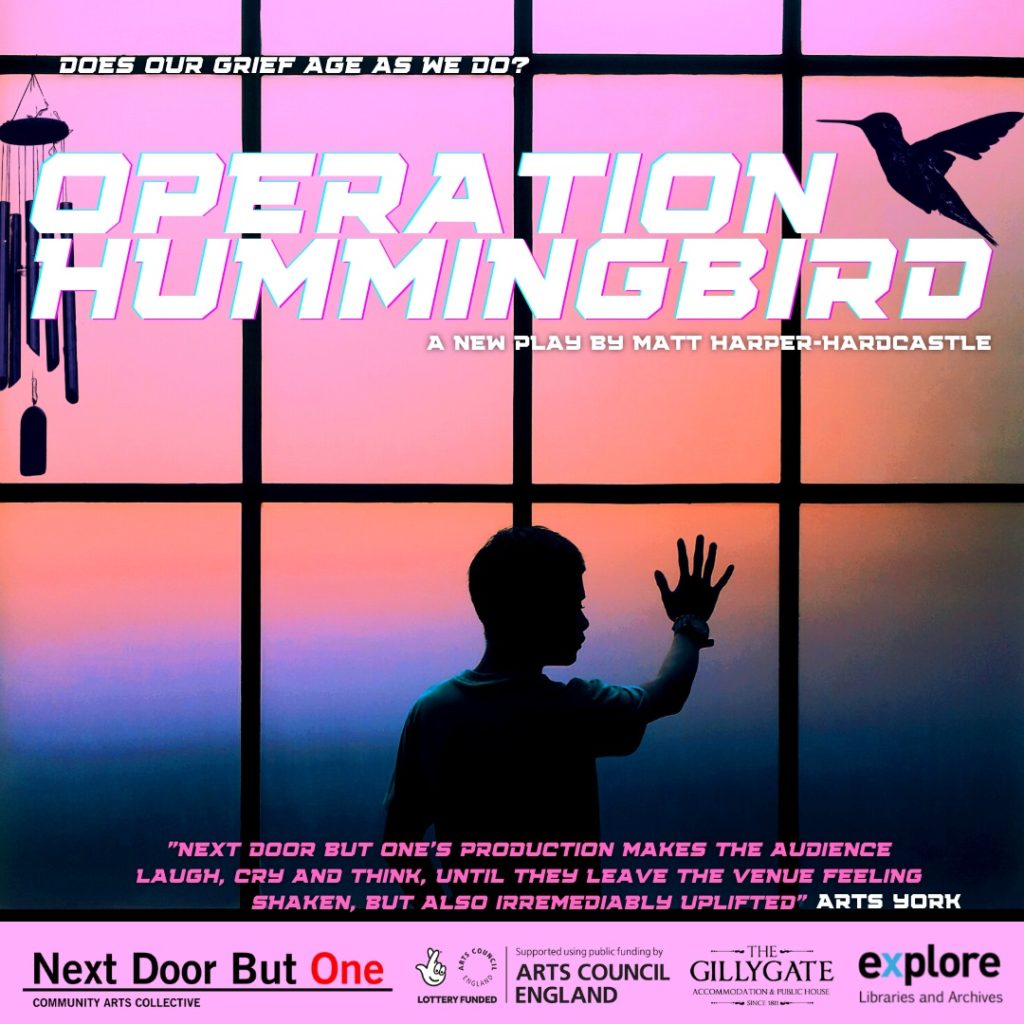
What is the significance of linking up with Explore York for this library tour?
“There are three key reasons. Firstly, we wanted to bring live theatre closer to people, especially in light of Covid. So, having performances to the north and south of the city, as well as centrally, should hopefully give a space for everyone.
“Secondly, libraries are buildings that exist to house stories, so why not make a live one happen there too.
“Thirdly, some slight inspiration from my late mam. She was a librarian in west Cumbria and saw the building as central to the community. It’s where people connect with others, learn skills, tap into new interests, seek help, understand the area they live in, and that’s true to the ethos of Next Door But One’s work, so it seemed like the perfect partnership.”
The Gillygate’s Brian Furey is a good friend to the arts, whether putting on Alexander Wright’s shows, both indoors and in a tent, or your York Trios shows. How did you cement the relationship to become the company in residence? What benefits will it bring to Next Door But One?
“There’s a genuine generosity that The Gillygate has to its staff and community that we admire. Little did we know that the Fureys were also admiring the same qualities in us when supporting Yorkshire Trios.
“The residency was cemented by us both discussing the fundamentals of what we were trying to achieve and realising that it was the same; we want to bring members of the community together to enjoy and benefit from a shared experience.
“So, in its simplest form, ‘two heads (or companies) are better than one’ when there’s a shared goal. As a company it now means that we have a home; we have office, rehearsal and performance space, giving us more autonomy over our programming.
“But above all, partnering with The Gillygate means we have a real community champion in our corner and that’s invaluable.”
